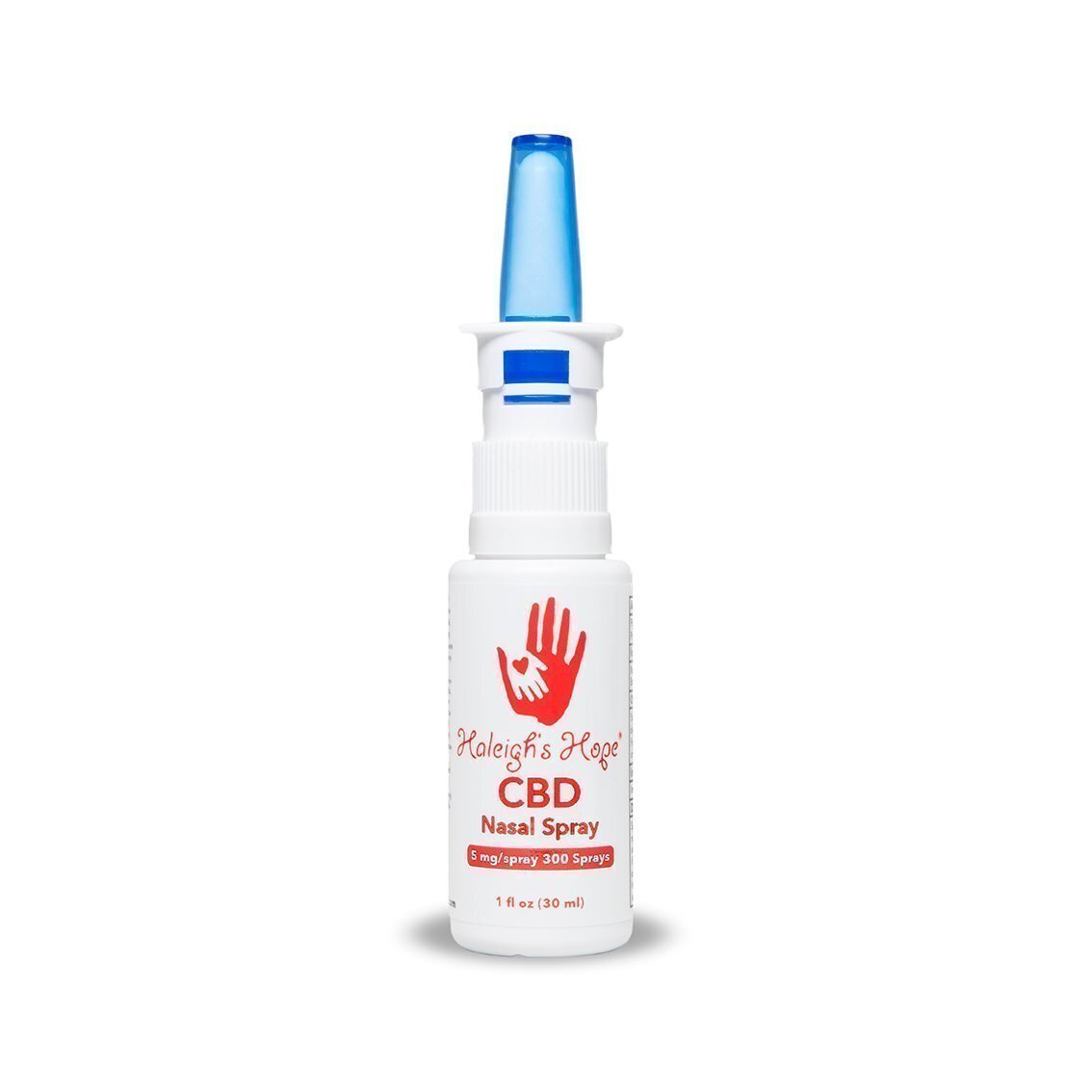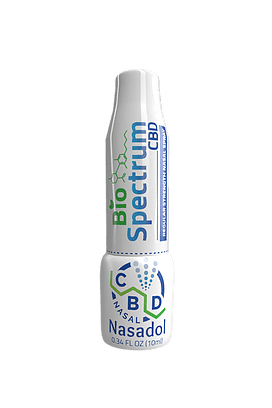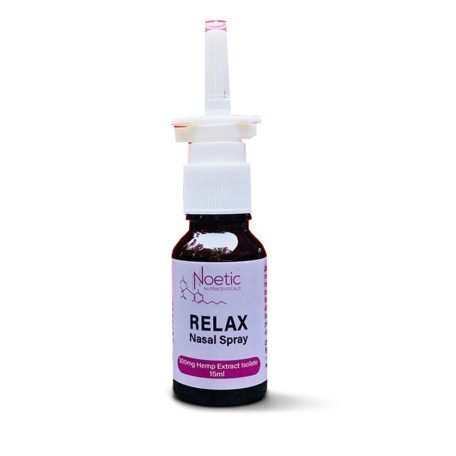The hemp market has a new trick up its sleeve that may be more effective and fast-acting than other products. Health wise, nasal spray is an appealing alternative to edibles, lotions, and tinctures, which take longer to come into effect.
Using CBD nasal spray delivers a fixed dose of cannabidiol oil through the nose to the brain. It’s a quicker delivery method that skips absorption in the liver. With allergy season right around the corner, those who rely on saline nasal sprays to breathe easier may find additional relief from hemp extract.
That’s because cannabidiol has known anti-inflammatory properties. Nasal spray could alleviate uncomfortable conditions that cause inflammation in the brain and nasal passage, such as seizures, migraines, and sinus pressure.
Since infused nasal spray is fairly new, knowing how to find trustworthy products can be difficult for first-time buyers. Below, you’ll find four of the best CBD nasal sprays that we think you’ll enjoy.
What is CBD Nasal Spray?
CBD nasal spray is a liquid saline solution that’s squirted into the nose, similar to common decongestants. It’s recommended that you sniff, not snort, nasal spray. Researchers generally distinguish between two types of hemp delivery methods: intranasal (through the nose) and sublingual (under the tongue). Smoking or vaping is regarded as a separate delivery method.
Tinctures, capsules, and gummies are all examples of sublingual administration. With these forms of cannabidiol, the rate of oral bioavailability (how much is absorbed into the bloodstream to produce an effect) is anywhere from 13-19%.
Intranasal administration is garnering more attention from researchers, as it allows the compound to move quickly through the bloodstream via the nasal cavity. CBD nasal spray has a bioavailability of 34-46%.
Along with cannabidiol, other ingredients you might find in infused nasal spray include:
- Saline: Saline solution is made from non-iodized salt, water, and baking soda. This combination reduces inflammation and helps clear out dust or pollen.
- Coconut oil (MCT): Coconut oil is a carrier for CBD that helps with absorption in the bloodstream.
- Potassium sorbate: This additive is water-soluble and preserves the shelf life of nasal spray. It’s commonly used in personal care items to reduce bacteria, mold, and fungi.
- Xylitol: Xylitol is a compound used in nasal sprays to moisturize and wash away pollutants.
- Lecithin: The sunflower variety of lecithin is used in saline solutions to help with absorption.
Potential Benefits of CBD Nasal Spray
Anxiety, pain, and sleep seem to be the most popular reasons for people to use cannabidiol. Despite the lack of research limiting what we can say about the benefits of CBD nasal spray, we do have anecdotal evidence from customer testimonials to give us insights.
People say nasal spray helps with seizures, migraines, and relaxation. Due to its increased rate of bioavailability, people looking for quick pain relief may want to try nasal spray.
Is CBD Nasal Spray Safe?
Putting CBD into your nose isn’t something you generally hear about. Fear not, however, because nasal spray has been deemed safe by researchers. The intranasal delivery method is favored by some and is more effective than oral administration.
Given the fast rate of absorption via intranasal administration, medical professionals consider nasal sprays as non-invasive (you can do it yourself) and a fast-acting alternative to pills. Those who find it difficult to swallow pills may find the intranasal route easier.
Using nasal sprays may be preferable than smoking if your lungs are sensitive to smoke. Additionally, nasal sprays don’t pass through the liver. Instead, they offer quick relief since they go straight to the bloodstream and avoid digestion altogether.
Additional Considerations: CBD Nasal Spray
While we’re on the subject of safety, it’s important to mention that, as of 2018, hemp is federally legal and considered safe according to federal law. The only caveat is that it must not contain more than 0.3% THC.
Now, the Food and Drug Administration (FDA) still hasn’t provided standards for hemp companies to follow, meaning there are a lot of unanswered questions, specifically in regards to how to dose CBD. Some companies take advantage of this information gap and mislead customers by making bold health claims about their products.
Due to the absorption rate of nasal spray, you won’t need a lot to feel the effects. The brands listed above suggest spraying 1-2 times in each nostril. That’s only a 1-5mg dose, but remember that since it’s passing through the nasal cavity, it comes into effect immediately or within minutes after use.
Our Criteria for the Best CBD Nasal Spray
Buyers should be cautious of a few things before buying CBD nasal spray, or any product for that matter. Clinical research featuring cannabidiol and humans has its limitations — most of what we know about this substance comes from animals and in vitro (cell) studies. That said, the government is beginning to fund hemp and THC research. Until we hear more, buyers can find nasal spray using the following criteria:
- Certificate of Analysis (CoA): Published third-party lab results ensure that the potency amount marketed on the label matches what’s inside the product. CoAs also test for contaminants. Brands that include this information within the product description are more trustworthy than others that make you buy before receiving access to lab reports, usually in the form of a batch number.
- Potency: Most products deliver a 1-5mg dosage of per spray. Without clear guidelines from the FDA, however, it’s difficult to access potency. In the United Kingdom, patients with Huntington’s disease used up to 7-12 sprays per day of Sativex, a THC:CBD treatment. We recommend starting low and going slow with nasal spray.
- Price: Cannabidiol is expensive for a reason. Extraction and acquiring third-party lab results come at a hefty price. Depending on your budget, you can get CBD nasal spray at an affordable price, so long as the company adheres to our criteria. (Never buy if there’s not a CoA).
- Extract Type: Isolate (pure) extract is cheaper to produce, whereas full- and broad-spectrum costs more to extract. When you buy full- and broad-spectrum extract, you get whole-plant hemp compounds such as terpenes and flavonoids in addition to cannabinoids. Some people theorize that these extract types are more beneficial to your health, although there’s not enough evidence to support this so-called “entourage effect.”



